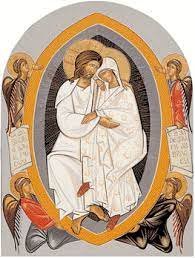We all have heard of Eharmony, that online dating platform which helps singles to connect. Can you guess whose Eharmony profile this might be: Single Jewish male, early 30’s, likes to travel, hangs out with a mismatched crowd of associates, open to meeting anyone but mother wants me to meet a nice Jewish girl. Could that be the profile of Jesus of Nazareth? Most of us would not imagine Jesus involved in dating anyone yet today’s Gospel shows us Jesus at the ancient equivalent of Eharmony.
In the ancient world, dating regularly began at wells. Just remember that a well was the scene where Abraham’s servant found Isaac his wife Rebekah, where Jacob met Rachel and Moses met his wife Zipporah. In placing Jesus and the unnamed Samaritan woman at a well, people at the time of Jesus would have thought of Eharmony.
The beginning of John’s gospel gives Jesus a strange title: Bridegroom. Jesus performs his first miracle at a wedding feast, John the Baptist refers to Jesus as a Bridegroom and today the Bridegroom meets his bride at the well.
It would help us to understand the encounter between Jesus and the Samaritan woman as a symbolic meeting. Let’s remember that Jews thought of God as the Bridegroom of Israel, a Bridegroom whose Bride was not always faithful to her Bridegroom.
Some of us might hear Jesus comments about the Samaritan woman’s five husbands as a reprimand but some history lies behind that comment. In the First Book of Kings, when we hear the story of the beginnings of the Samaritans, the Assyrian King, after exiling the 10 northern tribes of Israel, brought people from five other countries into the land. These people who worshipped their five foreign gods, were instructed by Jewish priests to worship the God of Israel. However these foreign people combined their pagan cults with Jewish worship and so the Samaritans worshipped with a polluted faith. The Jewish prophets compared this blending of religions to infidelity in a marriage. Jesus comes to this Samaritan woman as the Bridegroom who will return her to fidelity to her one Bridegroom.
Jesus’ conversation with the Samaritan woman, the longest conversation Jesus has in the bible, shows a woman who has gone to Bible study and knows how to hold her own with this Jewish rabbi. Throughout the conversations, Jesus is breaking down the walls which this woman thinks separates Jesus from her. Jesus does not pay attention to the wall which might separate a Jew from a Samaritan and a Rabbi from a woman. He offers her the water that will spring up to eternal life.
In answer to the question about where to worship God, on the Samaritan location of Mount Gerizim or the Jewish Mount Zion on Jerusalem, Jesus shifts adoration to a new center, to the heart, there to worship God in “spirit and truth.” Jesus says something a bit strange: “The true worshippers will worship the Father in spirit and truth, for the Father seeks such as these to worship him.” (Jn. 4: 23)
The woman hears in Jesus the words of a prophet, then the words of the Messiah. Jesus reveals himself to her, reveals himself as the Son of God with the name of God taken from Exodus: “I AM He.”
Last week, I invited you to identify with the different characters of the Lenten gospels and today you are invited to identify with this Samaritan woman. She does not have a name to help us see ourselves in her. The Samaritan woman is seeking after God, she desires God, something deep in her heart knows an emptiness only God can fill. She represents that deep longing each of us feels, that desire to love and be loved, that yearning which we satisfy in the beloved of our heart.
Jesus as the Bridegroom represents the discovery of that deep longing of your heart, that desire to love and be loved. In this Gospel, that desire is labeled with the word “seek.” At the start of the Gospel and at its conclusion Jesus asks his disciples, “Whom do you seek?” In the heart of today’s reading, we heard that the Father seeks true worshippers.
God plants in each of your hearts this deep longing and desire which only God can satisfy. God seeks and desires you with that same deep yearning. Yes, other loves come from our heart but all these loves are part of that deeper love we have for God and God for us.
During this week of Lent, ask yourself how faithful you are to that deep desire in your heart, how you may let your heart stray, how you may center your heart in that deep desire. Jesus the Bridegroom is searching for you, seeking you, planting in your heart this deep unsatisfied desire. Jesus comes to you this day in a communion of hearts to satisfy that yearning. May you return to Jesus that you too may discover God’s holy love surging in your heart surging as a spring of life giving water.


